Galactic Patrol by E. E. "Doc" Smith

Reading Galactic Patrol by E. E. "Doc" Smith is like finding a great-grandmaster key to twentieth century science fiction. This is the archetype not only to space opera, but to all of mainstream scifi in the twentieth century. After this, many things from the last 75 years just clicked, as if a key had thrown a bolt with a snap. Let me unpack that metaphor a little bit for those of you who haven't been locksmiths.
A master key is a key that can open many locks, unlike a normal key which is intended to open only one. The concept of a master key can be given levels or hierarchies, such that you can have higher level keys that will open up everything below them, but not above them, culminating in a great-grandmaster key, which opens everything.
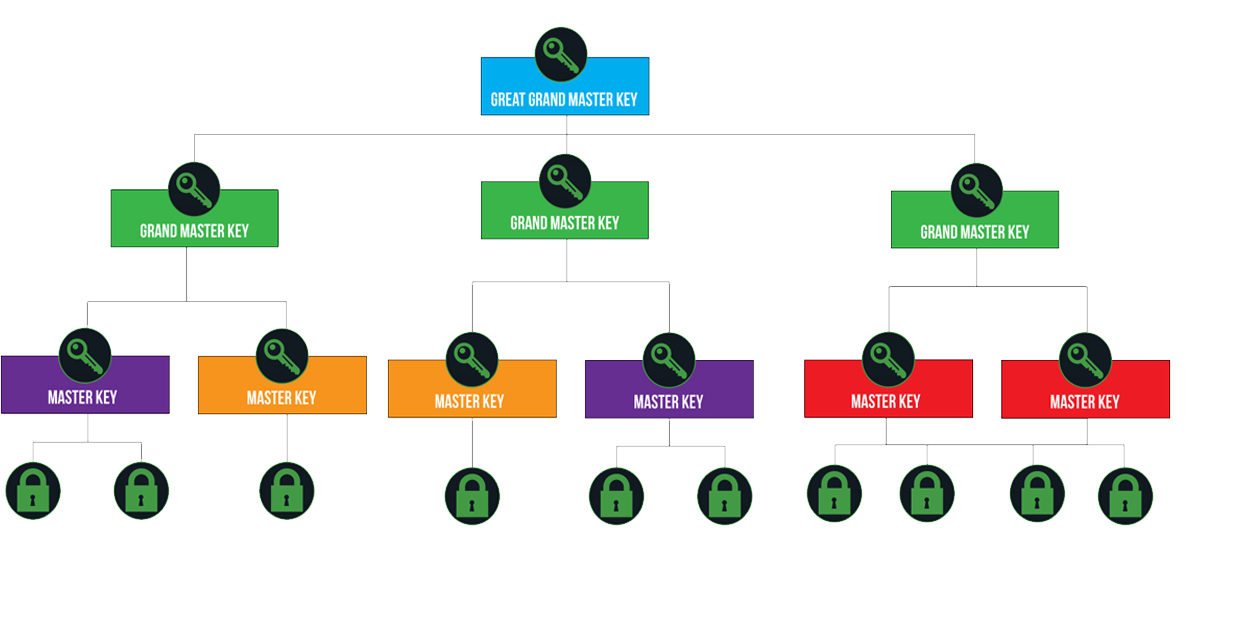
Setting up a great-grand master key system is a fascinating exercise in discrete mathematics. Implementing one requires well-crafted locks and keys that are capable of maintaining the needed tolerances to operate in the complicated tumblers of the great-grand master key system.
Such a system is a product of the civilization that produced the Second Industrial Revolution. In much the same way, Galactic Patrol is a characteristic product of the same civilization. It is a story of great civilizational self-confidence, of industrial war, and of the capacity of the state to shape and direct its citizens to great ends. And like a great-grand master key, it works on multiple levels simultaneously.
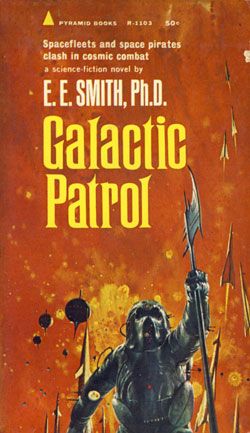
In one sense, Galactic Patrol is just like many other adventures written about the same time. The hero, Kimball Kennison, is superior both to other men and to his environment. This is what you should expect, as it is a classic romance in Northrop Frye's sense. To counter-balance Kennison, the antagonist Helmuth is nearly his equal. Helmuth is just as bright and as skilled a warrior as Kennison, and while Helmuth leads through fear instead of force of character, each man can call upon vast fleets to do battle. And what battles there are! Broadsides, boarding actions, and no quarter given.
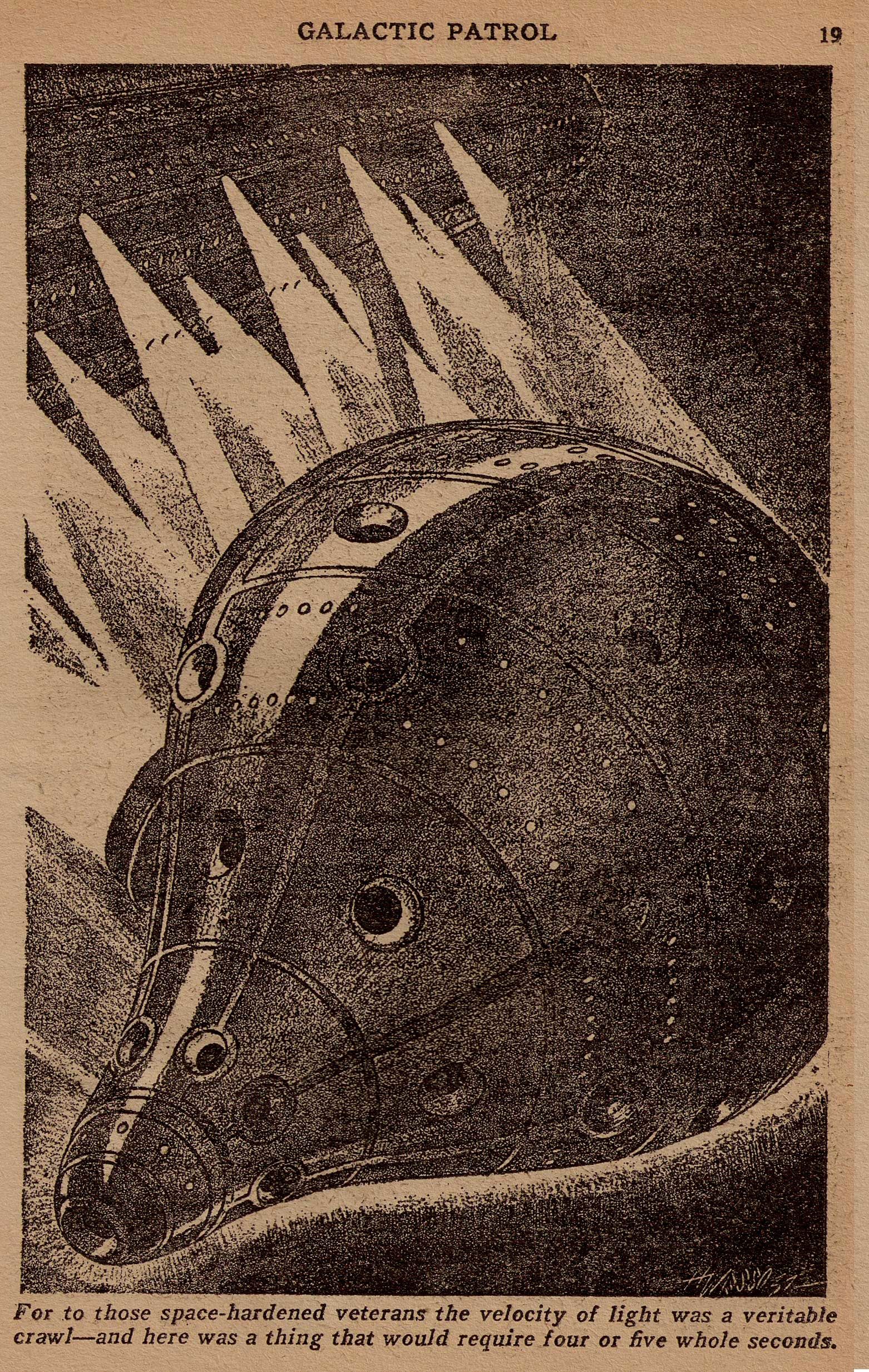
Instead of seeking a war of attrition, each side then embarks upon a quest for a decisive strategic advantage through a combination of espionage and industrial development. But there's more! All of this plays out on one of the grandest stages I've ever seen, in a galaxy that can be transited in hours or days, but that is nonetheless so vast that neither side truly knows the disposition of forces or what potential allies might be as of yet uncommitted and in strategic reserve.
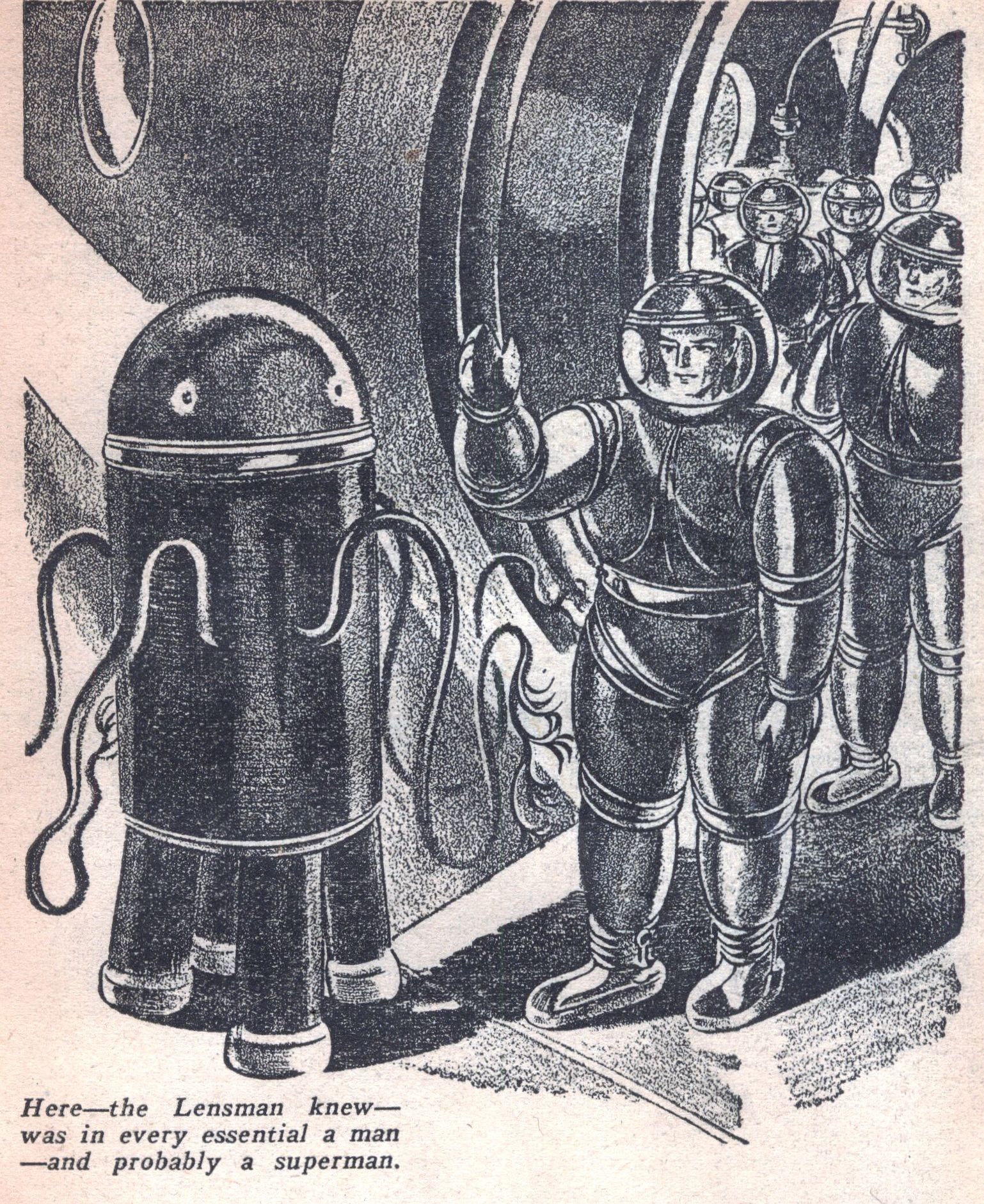
There is also a budding romance, in the contemporary sense, between Kinnison and the nurse who helps put him back together after a failed mission. A woman who could be his equal, but as a complement rather than a contrary. This book has everything! Which is why it spawned endless imitators and homages for decades.
But Smith is nearly forgotten now. Which obscures that the authors who are now better known were riffing off of or arguing with Smith's works. So let's take a look at what happened.
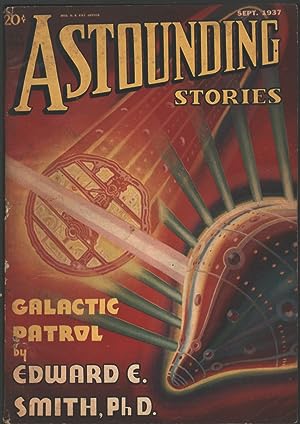
Galactic Patrol was first serialized in Astounding Stories in September of 1937. That period was the peak of American innovation, and the stories from that era reflect that. Galactic Patrol is upbeat, adventurous, and full of a sense of wonder. It has a similar tone to Kipling's With the Night Mail from thirty years earlier. Smith's stories assumed that the great achievements of living memory would continue for the foreseeable future.
Only a decade later, science fiction would instead be full of despair, with themes of apocalypse and technological overreach dominating first the short story magazines and then the novels for at least thirty years after. If you use the end of World War II as a watershed moment when one era passed away and another darker age came into being, then perhaps you should expect this.
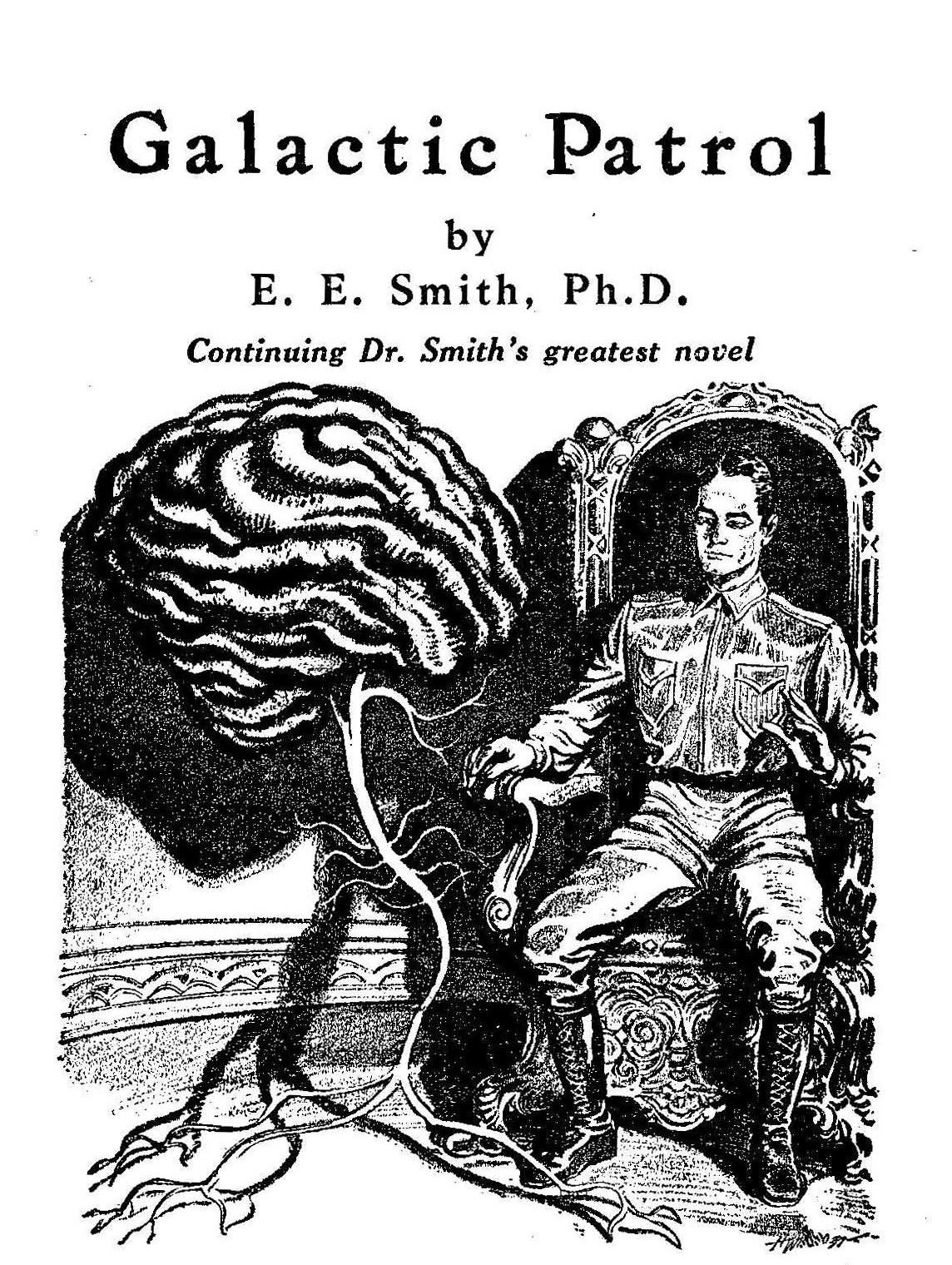
It is often said that the Great War marked the end of an age, with the term Fin de siècle often joined to the social devastation wrought by losing an entire generation of European elites in the trenches of that war. However, there is another way of looking at this period, with a grand sweep of rising nationalism and state capacity joining together to make the most effective states the world has ever known. John J. Reilly used the period of 1861 - 1945, what he called the Decisive Lifetime or the Long Lifetime, as a shorthand to represent the project that joined economic and political mobilization to the ends of the state.
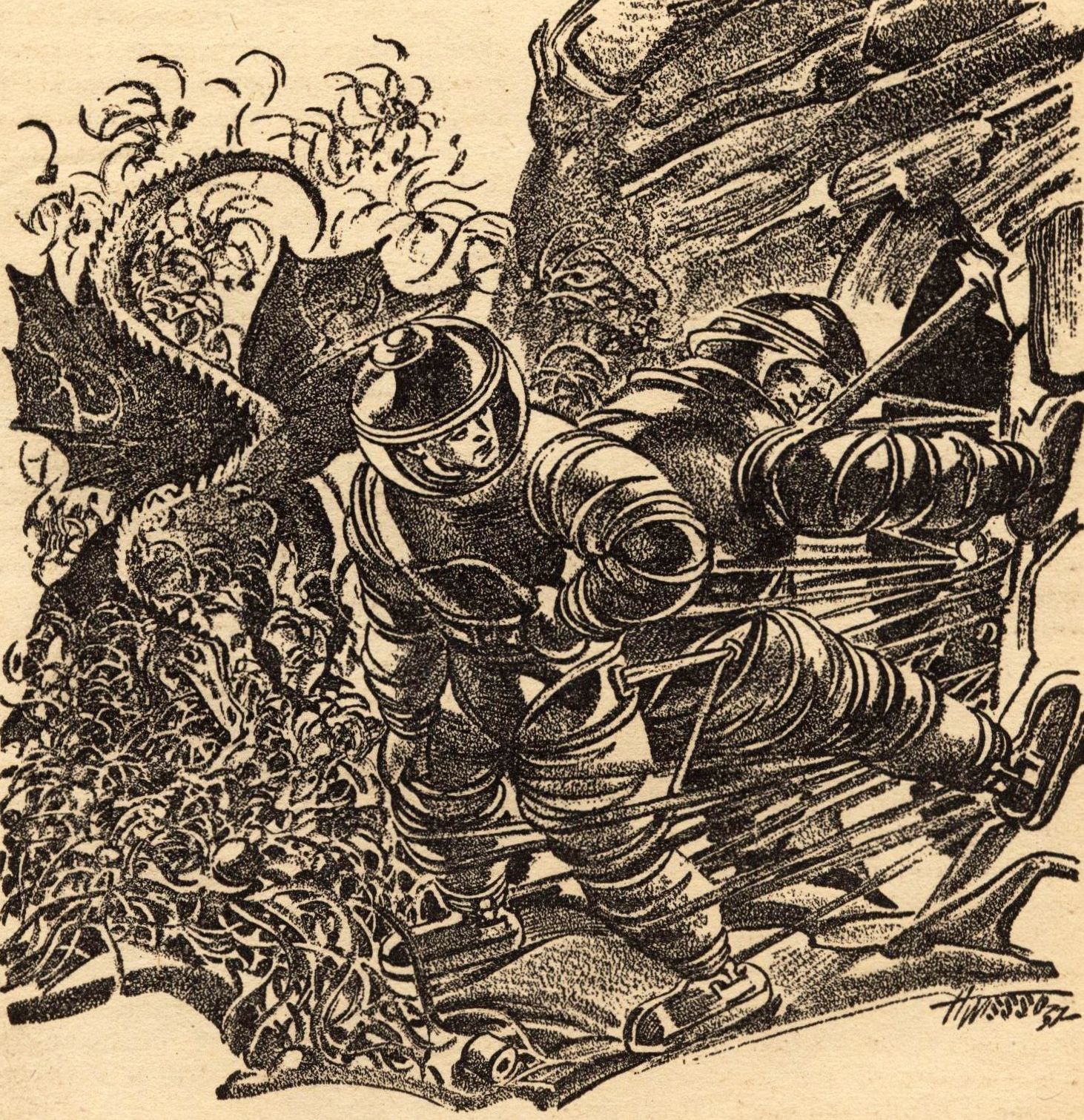
When this was happening, it was largely experienced as a great benefit by the people of that time:
Educated people in England and America around the year 1900 believed in social progress because they had experienced it. In England, where our statistics are best, crime and illegitimacy rates at the time Queen Victoria died in 1901 had fallen by about half from their mid-nineteenth century high. Public drunkenness became rare and alcoholism ceased to be an accepted fact of private life. Literacy became nearly universal, sanitation and diet improved at every level of society. People put great effort into staying clean, and governments built infrastructure that enormously increased the availability of water to common people. Wages nearly doubled in a generation. The entire adult male population was enfranchised. Married women gained control over their own property. All this happened while large towns became sprawling cities and severe financial panics periodically shook the economy. (The term "depression" is a later American euphemism).
This level of civilization was maintained through the first half of the twentieth century, through two world wars. Then, in the 1950s, the statistical indices of social pathology began to creep upwards.
And then it started to come unraveled, and the stories of the future, which despite the pretensions of authors and fans, have much more to do with how we see ourselves in the present than with any kind of real prediction whatsoever, turned darker.
What clicked for me is that Doc Smith's sweeping space opera set the tone for much of what followed. The optimism, both moral and technological, of Smith's stories became the template even for those who disdained Smith. The science fiction authors of the age that followed saw themselves as optimists even when what they were writing was depressing.

At least for some of the authors who followed Smith, his works were also too reactionary for their purposes, even as they sought influence by writing in a frame that owed much to him:
In essence, they were written for boys by a writer that never quite grew up; E. E. Smith is like a child playing with stars and galaxies, without bothering for a second about credibility or morals or anything that could possibly take the fun out of the game. -Sam J. Lundwall, Science Fiction: An Illustrated History
But at the same time, it is clear that not only did Galactic Patrol have an outsized effect on what science fiction looks like, many authors have put explicit references to Smith in their own works. After reading Galactic Patrol, here is a short list of things I think are clearly homages:
- S. M. Stirling's giant Dutch-speaking warriors from a high gravity jungle world Frystaat, inspired by the character of Van Buskirk
- Jason Anspach and Nick Cole, a secret world concealing great power far beyond the edge of the galaxy, inspired by Boskone's base
- Jason Anspach and Nick Cole, the 1% of the 1% of the 1% of the Legion, a reference to the graduation rates for Lensmen
- Larry Niven, reactionless drives in Known Space, inspired by inertialess acceleration
- George Lucas, pretty much everything in Star Wars, from the morally neutral mental adept Arisians to the hours to days travel time to anywhere
- Will Wight's Magic Tower, inspired by Wentworth Hall
So, with all that praise, what isn't as good? What stops Galactic Patrol from selling as well as Dracula? Smith wasn't a great prose stylist. He got the job done, but I don't think there are any lines in Galactic Patrol that I would consider quotable. The original versions also have...creative...punctuation, which is a real impediment now, as a pretty big part of the book buying public are now grammar and punctuation sticklers.
Smith also didn't write a talky book. Characters do have conversations, but it is nothing like what a contemporary author would do. You get just enough to setup whatever it is that Smith wants to zoom off to next. The pace is astounding; the book bounds from action to action without a break. One of the best phrases I have seen to describe this is "inertialess narrative", jumping from one high point to the next without any of the boring parts in between. Contemporary writing is no longer like this, and I suspect many readers would be baffled by the pace at which Smith introduces new characters and places.
I don't think many contemporary authors can match Smith's wild flights of imagination, but I also suspect that his style would prevent Galactic Patrol from being appreciated now. Which is a pity, since Galactic Patrol is not only a foundational work, it is really fun too. I don't think you would need to add much to a modern version of Galactic Patrol to recapture its best features. A little bit of exposition and characterization would add up to a pretty big opportunity.
With Both Hands Classics | My other book reviews | Reading Log
Mini-reviews
Buy Galactic Patrol on Amazon
Buy Galactic Patrol on Abebooks
Comments ()